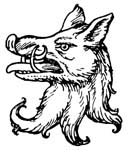
Pagans or Apostates?
PLATO VS. DEWEY
He who aims at changing society — for good or for evil — knows that he should gain control over three things: education, the news media, and entertainment. These are the keys that shape a society.
My concern is education. Great men have always emphasized its crucial importance. To form young minds is to build the future of a society. There is no nobler task, and education begins at home. The mother is the primary educator of her child, for she will spend more time with her babies than the father can, even though his role is also crucial. To educate is to lead, to draw, to guide. The child, inexperienced and unknowing, needs a guiding hand to teach him the elementary rules of human existence. This hand should be both firm and gentle: firm because morally, intellectually, and physically, the child is not yet steady on his legs; gentle because this firmness should be an expression of loving concern for his welfare. Granted that these two qualities are not easily combined, it is typical of great personalities that they manage to unite what — at first sight — are irreconcilable opposites.
It is commonly said today that “we have fallen back into paganism.” This claim is a gross oversimplification. Granted that man’s nature has been wounded by Original Sin, it is definitely not true to claim — as the Calvinists do — that it is totally corrupt. We only need turn to the great works of pagan antiquity to see that the best among the pagans were sincere lovers of truth and that their contributions are remarkable even though they were inevitably incomplete. They did not benefit from Christian revelation, but their works prove that there is a natural law inscribed in man’s heart, and that men of good will can easily read its dictates. Plato was such a man.
Plato devoted most of his writings to education. His two major works, The Republic and The Laws, are dedicated to this all-important topic. This article aims partly at etching the accomplishments of this great pagan.
Had Plato met Peter Singer (who advocates infanticide at Princeton), he would have been outraged. To place animals on the level of man would have kindled his ire. Some animals can be trained, that is, forced to do the will of the trainer; one can train a dog to take a few steps on two legs. Children can be trained as far as certain physical activities are concerned, but education addresses children as human beings. In this case, the educator worthy of the name does not impose his will upon his pupils; he guides them to do, in collaboration with them, what they ought to do, so that, one day, they will freely do it on their own. The knowledge of this “oughtness” will benefit the child: Knowing the moral law and living up to its norms is essential to man’s true development.
You May Also Enjoy
Catholics need not look to revamped pagan religions for spiritual enrichment, especially since these religions contain grave error.
The temptation to be religiously promiscuous is simply how Protestantism works. Once the individual is the axis, the whole world takes the shape of the ego exalted.
The timeless vertical nature of worship is almost entirely gone, and the liturgists and architects either don't see it or (much more likely) don't care.

